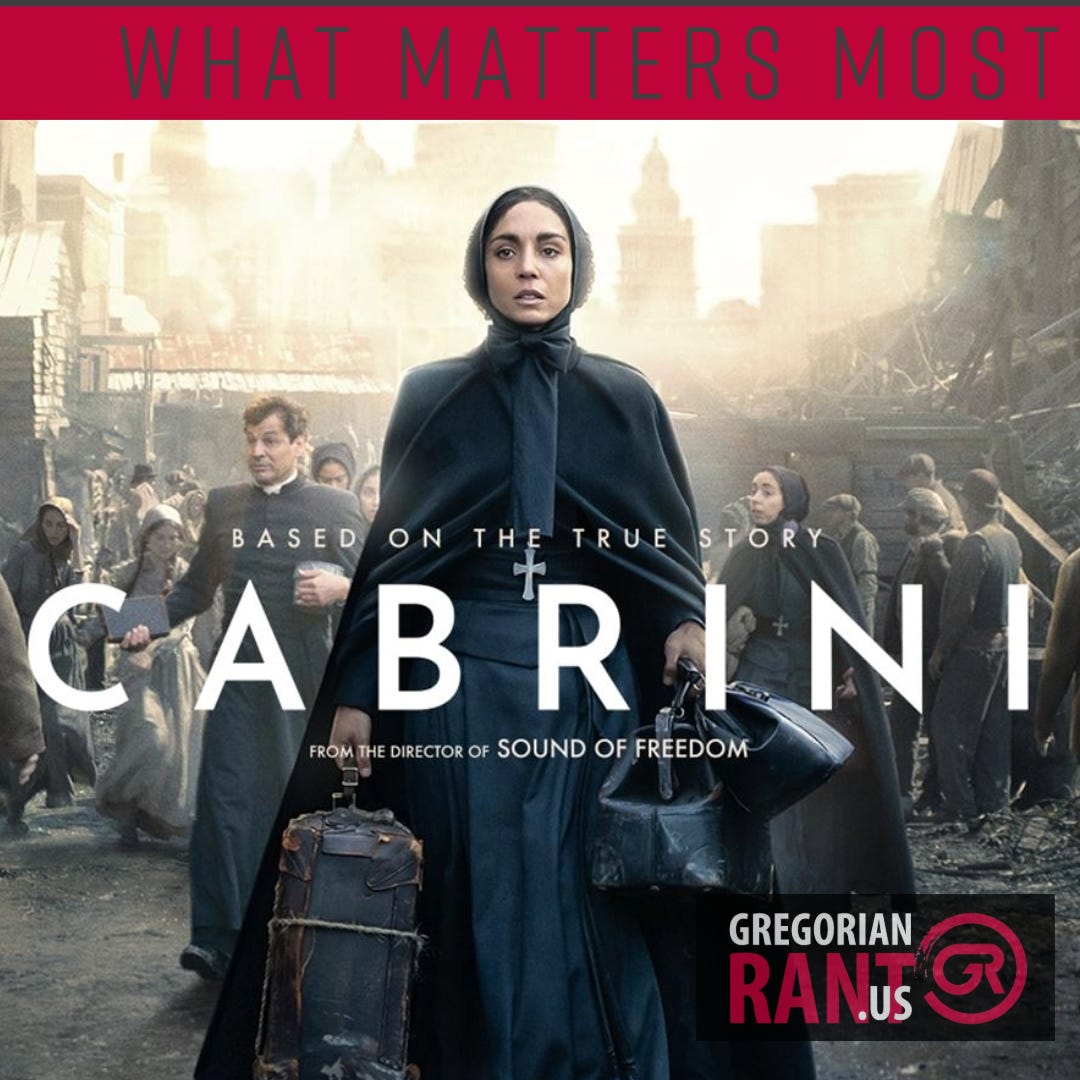Perhaps too much has been discussed about "Cabrini." Some of it has been reasonable and virtuous. I'm a bit haunted by this consideration because it puts the essence of Christianity in the spotlight. For those who presume to declare this movie infallible, or on the other end, spawn of dark realms, please resist the temptation to caricaturize what I'm saying ("straw man"): Without the slightest diminishment of the extraordinary quality, ascetics, and other incredible attributes of this movie, one can and should be able to ask questions for which there are objective answers:
1) Objectively, what was Cabrini's greatest accomplishment? (sainthood)
2) Objectively, in 245 minutes portraying so many consequential relationships in her life, was there even one, solitary moment portraying the Relationship that mattered most to her? Her profound love for the Eucharist? Her regard for Jesus Christ and passion for evangelizing? Indeed, even speaking His name? Again, not a straw man of "on her knees all the time," but even one moment? (no)
3) Objectively, based upon the movie's portrait alone (accomplishing tremendous good as part of a Catholic order), based upon the Church's objective criteria of what makes a saint, would she be regarded as a saint? (no)
To dismiss this is not only to dismiss the greatest accomplishment but her greatest accomplishment. Her essential saintly quality was simply not portrayed. To say such should be presumed makes the point: It's saying the distinctive, saint-essential qualities are secondary and inconsequential.
It risks reducing Christianity to simply doing great things, possibly with the ornamentation of Christianity. Objectively, while one could don the cloak of even a pope and accomplish the greatest of human endeavors, such is not sufficient to keep one from hell.
Yes, we know Cabrini is a saint, but literally, nothing in the film portrays what is essential to sainthood. That's the point.
By way of the standard: Is there even one example in all of scripture where Jesus' words and actions are not explicitly tied to ultimate things, holiness, and building the Kingdom (the vertical relationship)? What if "The Chosen" simply portrayed Jesus' miracles and parables completely devoid of a single reference to the vertical? Would you not think such was an impoverished portrait? And if failing to portray Jesus Christ per what we know was most important to Him, what He said and did, how can we not have the same, guiding standard for "Cabrini"?
"Many will say to me on that day, ‘Lord, Lord, did we not prophesy in your name and in your name drive out demons and in your name perform many miracles?’ [e.g., demonstrate human, and even religious, accomplishments] Then I will tell them plainly, ‘I never knew you. Away from me, you evildoers!’" Matt. 7:22-23
IN HER OWN WORDS:
"We must pray without tiring, for the salvation of mankind does not depend upon material success . . . but on Jesus alone."
~ St. Francis Cabrini




